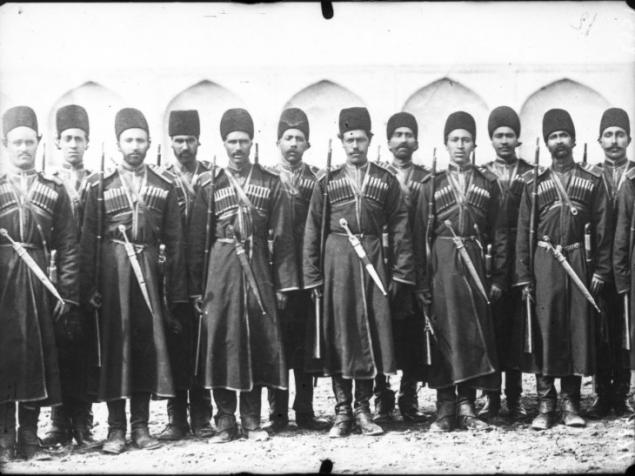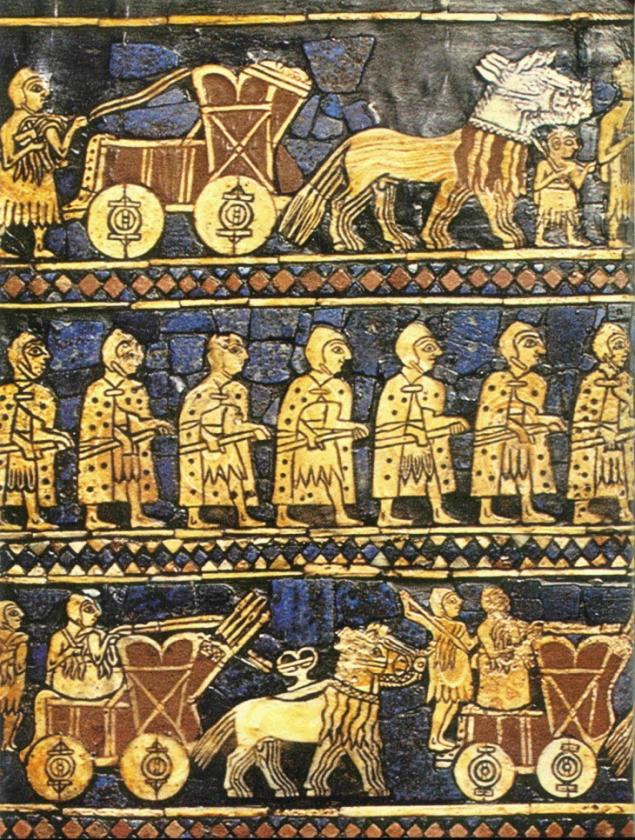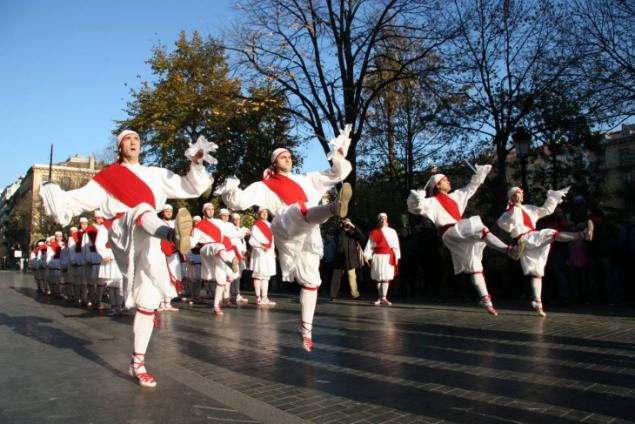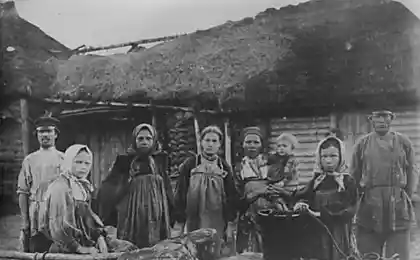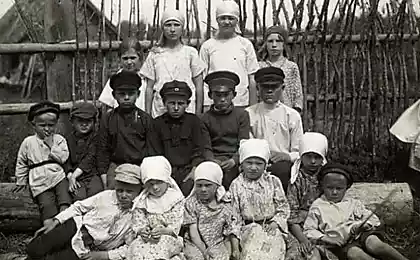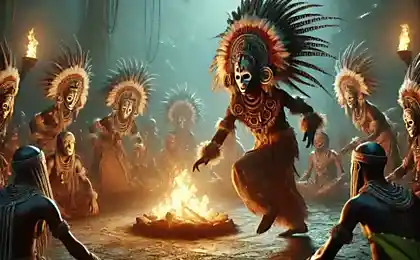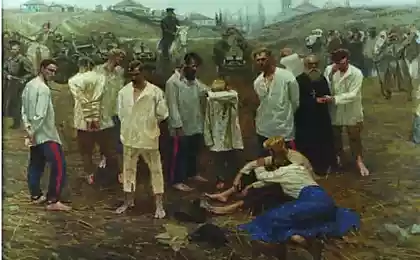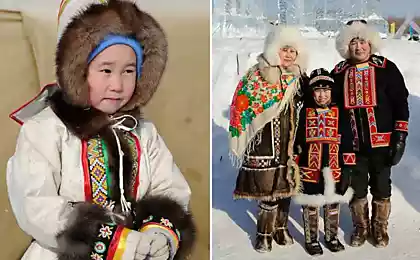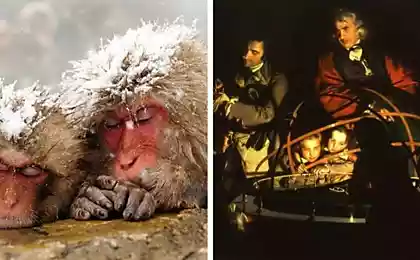1481
20 of the most mysterious people in history
Thanks to our knowledge of history and archeology, about some people can say with certainty: there were here, settled here, started by something. But in many cases the origin of entire ethnic groups lost in the darkness of antiquity. < Website offers you a fascinating overview of the different nationalities of the mysterious, some of which have already disappeared, while others have survived to modern times.
1. Russian h2> Imagine anyone still is not known, where did the Russian people, and when they became Russian. We do not even know how it happened word. Murky and our ancestors: among them anthropologists recovered the Scythians, Sarmatians, the Normans, but which of them gave birth to the Russian nation, we do not know.
2. Maya h2> The Mayan civilization was born before AD and lasted until the arrival of the Spanish conquistadors in the 16th century BC - 3,600 years. Maya were remarkably advanced civilization: even before the Christian era, they developed a calendar, improved agriculture, possessed astronomical knowledge, had a hieroglyphic writing.
3. Lapps (saamamy) h2> The origin of this ancient people living on Earth for at least five thousand years, is unknown. Also, we do not know to what race they can be attributed: Mongoloid or ancient paleoevropeyskoy. Lapland language belongs to the Finno-Ugric group of languages, but it is divided into a dozen dialects that are significantly different from each other.
4. Prussians h2> The first evidence of the existence of the Prussians appear only in the ninth century, and the last representatives of the people destroyed the plague years of 1709-1711. Mention of the Prussians found in many Indo-European languages, perhaps it comes from the word purusa, which translates from Sanskrit as "a man." However, the language of the Prussians, we also do not know anything.
5. Cossacks h2> Cossacks see themselves as a separate people, but it is not: the modern Cossacks consists of representatives of different nations. Researchers suspected among the ancestors of the Cossacks called Scythians, the Circassians, the Khazars, ready and other tribes. Cossack ancestral roots are found in the Sea of Azov, in the North Caucasus and even in West Turkistan.
6. Parsis h2> Currently in the world there are only 130,000 Parsis. This ancient people comes from Asia, and its members are united not only ethnic, but also religious roots: Parsis are followers of Zoroastrianism and carefully preserve their culture and traditions of many centuries. For example, are known for their custom of leaving their dead in the so-called "towers of silence", where the bodies of vultures eat.
7. Hutsuls h2> Gutsuliya called "Ukrainian highlanders", but the origin of the name of this people is not known. Some researchers suggest that the word comes from the word guzul Gotz - thief (of Moldovan.), Others that the word Cociulia - shepherd. Hutsuls traditionally support quackery, and they still exist witches - white and black. They are called molfar and hear everything.
8. Hittites h2> These people are highly respected in ancient times. The Hittites were quite developed, they first appeared constitution. Hittites developed chariots and worshiped the double-headed eagle. Where and when these people disappeared - it is unknown. Perhaps he mingled with Germanic tribes.
9. The Sumerians h2> Sumerian civilization - one of the most advanced and mysterious. It is known that the Sumerians had a written language, developed a system of water supply of crops, spoke on the complex tone language in which the meaning of words depended on the tone and striking deeply versed in mathematics. But we do not know where the Sumerians came to a linguistic group concerned their language.
10. The Etruscans h2> The Etruscans inhabited the territory of modern Italy, and their civilization was well-developed. Researchers admit the theory that Roman numerals come up with exactly the Etruscans. It is not known what caused the decline of the Etruscans and where they subsequently happened, but it is believed that it came from them later Slavs: the Etruscans and the Slavic languages have the same structure.
11. Armenians h2> Where did the Armenians? There are several assumptions. One of them - from the ancient state of Urartu, which has a population of Armenians there is a common genetic component. In another - the homeland of Armenians should be considered Hayasa, located to the east of the kingdom of the Hittites. Most likely, the Armenians were the result of mixing several ethnic groups and establishment of their common traditions.
12. Roma h2> The Gypsies are of Indian origin, but it was so long ago, Europeans in the Middle Ages was called Roma Egyptians - apparently, these people lived a long time on the territory of ancient Egypt. It is because we know the Roma tarot cards - the tradition of divination on them belongs to the Egyptians. In addition, Roma embalmed their dead and buried them in tombs as the Pharaohs, accompanied by a variety of property for the "afterlife».
13. Jews h2> With all these people are so unclear that do not even know what constitutes Jews in the dawn of time: nationality, religious group or social stratum. It is possible that the ancient Jews called all fans of Judaism, regardless of nationality.
14. Guanches h2> Guanches populated now part of the Spanish island of Tenerife. They knew how to build a rectangular pyramid, similar to the Mayan and Aztec pyramids. We do not know what these pyramids were designed and when they were built, and how the Guanches were in Tenerife: they clearly do not have the skills of seafarers and had no ships.
15. The Khazars h2> We know this tribe only records the historians of neighboring tribes. There is no archaeological evidence that may shed light on the question of what was the Khazars and the language they speak of its residents. And where they eventually happened.
16. Basques h2> Basques speak a completely unique relic language Euskara, the like of which is not found anywhere in the world. This language does not apply to any modern language group, as are the Basques do not belong to anybody: they are a set of genes is quite different from other people living in the neighborhood.
17. Chaldeans h2> living in the late second and early first millennium BC in Mesopotamia. The Chaldeans have Semitic roots. In 626-538 BC, the Chaldeans ruled Babylon, establishing Neo-Babylonian Empire. They are famous for the fact that paid great importance to magic and astrology: the Chaldean astrological predictions for a long time enjoyed great popularity among the neighboring nations.
18. Sarmats h2> The Sarmatians remained in history as the "yascherogolovye" according to the historian Herodotus. This nation was popular deformation of the skull, which is clamped in a vise from infancy, which is why the skull acquired flattened shape reminiscent of a reptile. There is speculation that the Sarmatian was a matriarchy, and that Russian headdress kokoshnik takes root in the Sarmatian tradition.
19. Kalash h2> Kalash - mysterious nation whose representatives are presently living in Pakistan. Kalash are "white Asians" and consider themselves to be direct descendants of Alexander the Great. Like it or not - it is unknown, but it is known that the Kalash language has a similar structure with Sanskrit.
20. Philistines h2> This people mentioned in the Bible, which states that they originate from the island of Crete. Philistines, as well as the Hittites, able to melt steel that was not available to all other peoples. We do not know where the Philistines had disappeared, but they probably have merged with other peoples of the Eastern Mediterranean.




